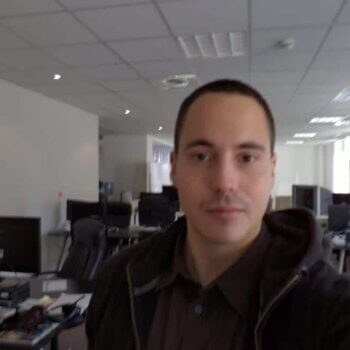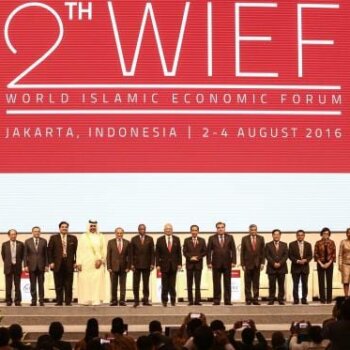Amit is one of the Co-Founders of InMobi and is currently based in the San Francisco office. After running the Revenue and Operations function for many years globally, he has taken up the responsibility to grow InMobi’s dominance and market share in North America region. Amit is also leading an ambitious initiative for InMobi which has potential to change the world of advertising and can also create multi-billion dollar business for InMobi.
Post his graduation, Amit chose to stray away from the conventional low risk approach of working with large companies and decided to opt for a career with startups to fulfill his desire to learn a few tricks on running a business. The passion of entrepreneurship really took over him within a few years and he founded a product company called Analyticsworks that created a business intelligence platform focused on media, retail and commerce. Post this, Amit was fascinated by the exponential growth of mobile phones and believed strongly that this device would bring fundamental changes to the world and thus embarked on the journey to start InMobi.
Outside of InMobi, Amit has been playing an active part in building a vibrant startup ecosystem. He is an angel investor and also advises young entrepreneurs on the various aspects of running a startup.
Amit has a bachelor’s degree in Mechanical Engineering from the Indian Institute of Technology, Kanpur. Amit got prestigious Distinguished Alumni Award for his exceptional contributions to Entrepreneurship.
In your own words what is Inmobi?
InMobi is synonymous to innovation and disruption in the mobile advertising space. Among others, InMobi has been recognized by MIT Technology Review as one of the 50 Most Disruptive Companies. It has revolutionized the industry by reimagining advertising to make consumers fall in love with ads. Miip, is our reimagined discovery platform that opens up a world of possibilities for mobile consumers. It enables discovery of highly relevant and curated products by reimagining advertising for a destination-less world. Miip delivers interactive and visually rich experiences to rivet consumer attention across a multitude of apps.
Based out of India, InMobi is a global company with 27 offices across 16 countries and a reach of 1.4 billion unique users across 200 countries and territories. Our USP is our people and our culture that we lovingly call YaWiO. Infact our culture, YaWiO has gone open sourced for other start-ups.
How did you come up with the idea of Inmobi?
The passion to build a global mobile-first business, based out of India got all four of us (Naveen, Abhay, Mohit and I) together. The industry was clear to us but with no precedence in India, we were treading the path not taken. We started with the idea of a sms based mobile search engine business called mKhoj. The idea was great but it was not what people were looking for. One year into the business with no funds left, we realized we had to change our offering and very soon. That’s when we came up with the idea of InMobi our mobile advertising business.
Could you walk us through the process of starting up Inmobi?
People say that we were very clear from the beginning on what exactly we wanted to do, but it wasn’t the case at all. We knew that mobile is going to be BIG and will be a global phenomenon. We explored various opportunities their associated pain points and found that advertising will be a crucial aspect for mobile as a medium to get high penetration. And we jumped on it. From day one of the company, the consistent theme has been global mobile advertising. We moved from doing advertising on SMS as mKhoj to mobile web and now on apps as InMobi. It was just an evolution with the changing ecosystem around us.
Did you encounter any particular difficulties during startup and if so, how did you guys overcome it?
While early bird catches the worm, it has no precedence to follow but its own instincts. Likewise, we were the first in the industry and hence faced our own set of teething problems. When we went hiring we realized that there were no trained people in the skill-set that we were looking for. We decided to hire people based on their attitude and ambition. That by the way was the stepping stone of our culture – YaWiO. Another instance that I can share is of deciding to enter China. Yet again, we were the first to do so in our industry. While we saw people taking the easier route of getting into a JV or so, we took the risk of entering China independently. It not only saved us time, but also ensured that we had sound infrastructure aligned to their requirements which in the long run is always beneficial. In fact in China we work as a Chinese company. We have a local team that understands the local nuances and we trust them with their decisions. Today, we are leading in the China market.
How have you been developing Inmobi since startup ?
Since the beginning we believed in the power of teamwork as you can’t build a successful business without it. We believe in finding passionate people who can take ownership with accountability and work towards the organization goal hand in hand. Our “GloCal” approach has helped us in building many regional teams where we hired from the respective countries and trusted them. This has helped us not only in bringing the trust with the local customers but also for us to understand their culture and opportunity better.
What kind of feedback did you get for Inmobi so far?
When you enjoy your work and put your heart and soul into it, the results show. InMobi has not only been recognized as 50 Most Disruptive Companies by MIT Technology Review, it has also received, Outstanding Startup of the year award by Forbes India Leadership Award, 2014. It was identified as the ‘Mobile Top 50’ in The Drum, 2013. And most recently InMobi received the 2015 Global Smarties™ Awards from Mobile Marketing Association, got recognized as 25 most promising BIG DATA solution providers by the APAC CIO Outlook Magazine 2015 and received The Sparks Award for Media Excellence in 2015.
Do you face a lot of competition in this industry? What is your strategy against your competition?
Our competition is with Facebook and Google and our strategy is very simple – never stop, just keep innovating and disrupting. With our recent innovation of Miip we already are ahead by leaps and bounds in innovation from them and we will continue to be so.
What can you tell us about the industry? Have you developed any industry insights that you could share?
The industry is very easy to enter but to sustain and spearhead the same you have to follow the mantra of creating IP, creating your own platform and just keep on innovating and disrupting.
What is the future of the industry and how do you plan to stay relevant in this industry?
Sky is the limit for this industry which is already 600 billion USD worth. We only see it growing leaps and bounds.
Were there anything that disappointed you initially?
Yes, most of them were related to hiring decisions. In the beginning we didn’t know the trade off between passion and someone having business contacts. A couple of senior hiring were made on the assumption that our business will take off because of someone’s Rolodex. Without product knowledge and genuine excitement about our space led to no tangible results. Now we have mastered the art of spotting the right talent.
What do you think about being an entrepreneur in Asia? Is it harder or easier, why?
No matter where you are entrepreneurship is not easy. But it does make you a better person. You learn to fail, you learn to succeed, you learn to trust, and you learn to be grounded. It is very simple – as an entrepreneur you just need to pick a problem and solve them one at a time till you succeed.
What is your opinion on Asian entrepreneurship vs Western entrepreneurship?
Nothing different fundamentally except for the difference in “infrastructure” for doing business. Countries like US has ecosystem of VCs, suitable policies, social setup and certainly a high concentration of people who are willing to work for startups. Asian countries in contrast have a lot of unsolved problems which are opportunities for entrepreneurs.
What is your definition of success?
If we can make the world and our society better with our work, then I call it success.
Why did you decide to become an entrepreneur?
Entrepreneurship is a spirit, it’s about someone enjoying solving tough problems in an environment which is changing and challenging both. Most of my professional journey was working with startups, so for me it was just taking bit more risk, start on my own.
In your opinion, what are the keys to entrepreneurial success?
Never give up! Failure is inevitable but if you keep going, so is success.
Any parting words of wisdom for entrepreneurs out there from your personal experience?
Just believe in your dream. If you are passionate about it and are willing to work hard and go that extra mile when you want to give up the most, your dream will get materialized. Remember that Rome was not built in a day. Do not fear from failure as it will help you learn more. So never give up and just keep doing what you love.






























